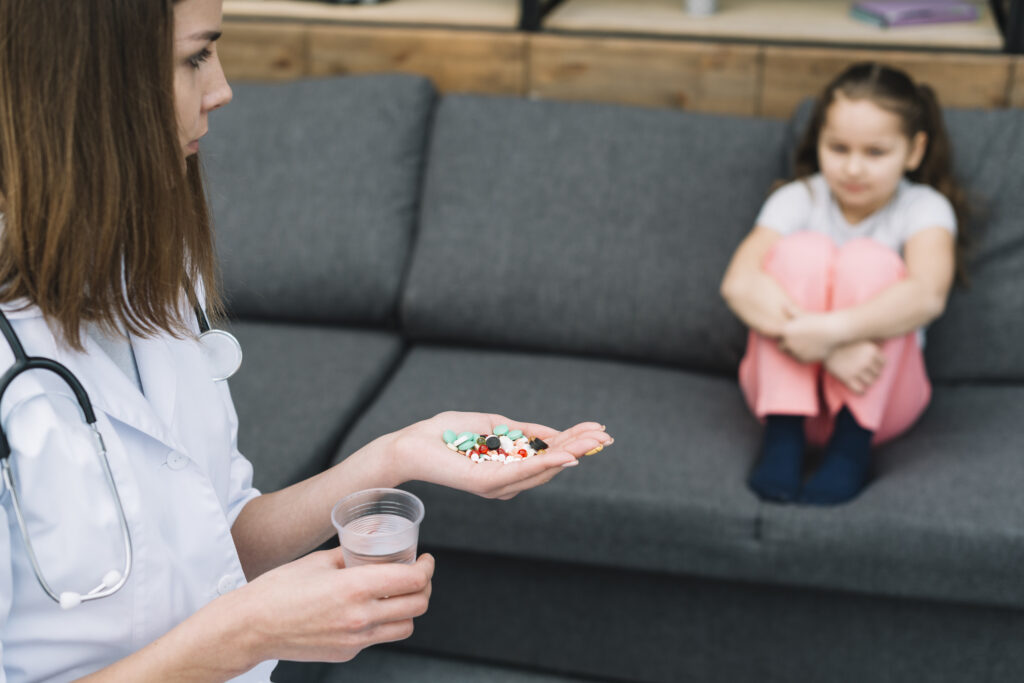CBT and medicine are effective methods that are often users to treat themselves, and these two methods probably stand alone in popularity. Since there are many individuals suffering from such disorders as depression, anxiety or posttraumatic disorder, it is fair to say that all of them have pros and cons. This document is meant to improve the mental health status and therefore it is helpful to those who wish to find all the possibilities and thus choose the proper one. In this case, the advantages and disadvantages of various psychotherapeutic as well as pharmacological treatment modalities will be described too.
Understanding Cognitive Behavioral Therapy (CBT)
Cognitive behavior therapy as a therapy describes a relation between thinking, feeling and behaving. The aim of such‐directed therapy is to identify and correct incorrect cognitive patterns, which serve to develop behavior and mental disorders. Such changes in a patient’s thinking and better coping mechanisms can be facilitated by a qualified therapist.
Key Benefits of CBT:
- Structured Approach: CBT is practical in that it is problem-oriented and time-limited to a period of about 5-20 classes at most. This makes it of importance to people who are pressed for time and are looking for instant outcomes.
- Skill Development: Cognitive behavioral therapy (CBT) helps patients control their emotions and actions, in a way that these skills would be practiced even after the patient’s treatment is complete.
- No Side Effects: Is the domain of psychotherapy similar to drugs in the sense that it is non-invasive to the physical being? For many, this makes it a better choice.
Understanding Medication for Mental Health
Those suffering from mental illnesses tend to be recommended pharmacological agents, useful for controlling affected feelings, such as anti-depressants, anti-anxiety agents or mood stabilizers. They often hear that medication helps to feel better, which to some extent, is true.
Key Benefits of Medication:
- Quick Relief: For some people, taking medicine can help relieve symptoms faster, which can be very important during acute bouts.
- Biological Basis: Medicines can fix chemical changes in the brain, which makes them especially good for some illnesses.
- Accessibility: Medicines are easy to get and can be given by a wide range of medical professionals.
Comparing CBT and Medication
Efficacy:
It has also been conclusively shown that cognitive therapy and drugs can relieve a range of psychiatric disorders. But they are not cure all. It is individual and how severe are his complaints. Among CBT – the type of counseling above – has proven similarly, if not more, effective as medicine on a patient with mild to moderate depression or anxiety. On the other hand, medication might help people with serious symptoms more at first.
Long-Term Outcomes:
It’s great that CBT lasts a long time. Pain killers may help, but they don’t always make things better. Brain-based therapy (CBT) teaches people how to deal with their ideas and feelings. A lot of people find that they don’t need to keep going to therapy or taking medicine to deal with it after CBT.
Side Effects:
There are many side effects which can be very annoying regarding medicines for example nausea or obesity or even increasing anxiety and disturbances in the mood. Apart from that, people might develop oral dependence on some drugs making it harder to discontinue. Unlike CBT, which hurts your body and focuses on how to make you feel and think psycho-logically, does not use any drugs.
Personal Preferences and Lifestyle:
If you have to choose between CBT and medicine, it usually comes down to what you like best. Some people might like how organized therapy is, while others might choose medication because it is easier for them. It’s important to think about how you live, how committed you are, and what feels right to you.
Combination of CBT and Medication
Brain-based treatment (CBT) and medicine may work best for many people when used together. With this method, you can quickly ease your symptoms with medicine while also getting therapy to deal with the real issues. A lot of people who work in mental health say that in order to handle long-term symptoms, people should first try medication and then move on to cognitive behavioral therapy (CBT).
Who Should Choose CBT?
- People who want to learn more about their thoughts and change them.
- People who don’t want to take their medicine or are scared of what it might do to them.
- Someone with mild to serious symptoms who wants to learn how to handle their issues.
Who Should Consider Medication?
- People with serious symptoms that make it hard for them to do daily tasks.
- People who haven’t gotten better with treatment alone.
- People who have a biological cause for their situation that might need medication to help.
The Importance of Professional Guidance
Mental health counseling (CBT) and drugs can be hard to choose between. There is someone trained in mental health who can look at your case and give you specific help. They can assist you in determining the optimal course of action given your preferences, ambitions, and circumstances.
Conclusion
In such a situation, would it not be preferable to opt for cognitive behavioral therapy rather than dependence on the use of drugs? It’s not easy to say. Both drugs and brain-based treatment (CBT) are good things that can help some people. Cognitive behavioral treatment (CBT) is acceptable particularly with vanishing ill effects to the environment and promoting positive social change. People with more severe complaints may be able to feel better faster with medicine.
The best choice for you will rely on your needs, preferences, and the mental health issues you are having. Take the best parts of both ways to help your mental health and use them together. A lot of people can use this.
Do not hesitate to seek professional help from a therapist or doctor if you or someone else are experiencing mental problems. A useful thing to keep in mind is that it is okay to ask for help if it is indeed needed.


